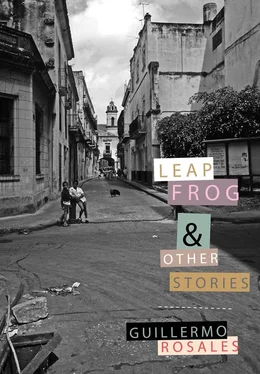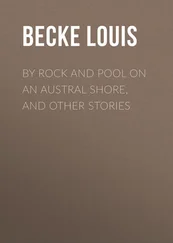They went out. In Coro’s room, everyone was listening to the radio. The announcer informed them that Cornelio Rojas’s convoy had just entered First Avenue.
“We’ve got him within our reach now,” Coro said. “Cossack, hand out the flags and the posters of the tyrant. We all have to keep a distance of two meters. Go on out. Quickly!”
One by one, they started exiting the old house, carrying flags and posters of Cornelio Rojas. Down Fourth Street came waves of people yelling happily,
“Cornelio, Cornelio, we love Cornelio!”
The conspirators joined the masses and started to approach the corner of attack. When they arrived at the site, they all placed themselves in the front line, near Danilo, who more than ever, felt the cold pistol under his shirt. Suddenly, the clamor rose. On the main street, Cornelio Rojas’s convertible limousine appeared in the distance, surrounded by dozens of plainclothes policeman who were looking all around them like mad dogs.
“Are you feeling confident, big guy?” Coro said into Danilo’s ear.
“My fate is sealed,” was the young man’s response.
A few steps away, Cossack made the sign of the cross discreetly so the crowd wouldn’t see her. The Madame gave Danilo a last kiss on the ear. Melanio Webster, who knew how to draw, was trying to quickly capture Danilo’s tense face with charcoal and some paper.
The convoy got closer. The flags waved happily and pictures of Cornelio were raised by hundreds of joyous hands.
And then something happened. Something that was not in the bunker inhabitants plans. A block before arriving at Danilo’s corner, Cornelio Rojas and Qaddafi got out of the limousine and started to walk between the two rows of cheering people. They talked to the people, kissed several children, and shook hands with some old men. In the blink of an eye, Danilo Castellanos found himself before Cornelio Rojas in the flesh and the tyrant was looking at him — his eyes radiating confidence and self-assuredness. Breathing with aplomb, knowing he was in absolute control of the situation, Cornelio leaned over to kiss a newborn, caressed the white hair of a teary-eyed old woman, gave a cigar to an old man leaning on a cane who seemed a hundred years old, and suddenly, he extended a soft, warm hand to Danilo.
“And you? What do you do for the homeland, my fellow countryman?”
“I’m a high school history teacher.”
“Keep fighting then, my fellow countryman. The revolution needs many men like you.”
He withdrew his hand. Danilo slumped over and, for a few seconds, felt he was about to pass out. He was afraid that the pistol could be seen through his shirt. But no, the crucial moment had already passed. The opportunity of a lifetime had been squandered. Cornelio Rojas and Moammar Qaddafi got into the limousine again, and continued at high speed toward the presidential palace. The groups dispersed. Danilo hung his head and started to walk to Coro’s big house as if he were a zombie. Then he felt a kick in his shin: it was Cossack. A bump to the head: it was Whitey; spit on his face: it was the Madame. The horrendous insults in his ear came from Nefertiti. The foot stepping on his was Melanio Webster’s, and Coro’s shadowy guffaw announced terrible punishment and humiliation. He continued walking slowly, without protest, toward the old, colonial style house that was the last bastion of resistance against tyranny. His resolve had weakened. Now they would always call him “the Rat,” and he would live with the rats, in the filthy basement, eating on the floor and sleeping over puddles of putrid water.
But all was not lost. The following month would bring the arrival of Yasser Arafat, the Palestinian leader. Another parade like this one would promenade down one of the city’s main streets. Perhaps then. Perhaps then!












